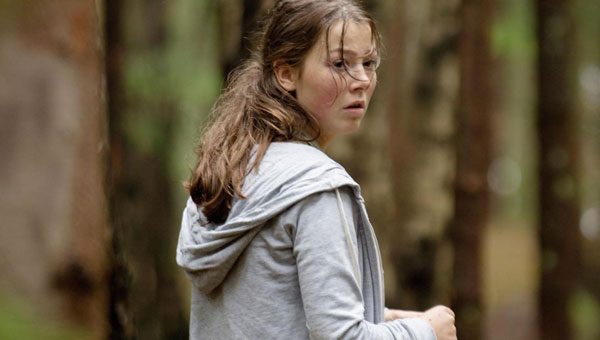Utoya: July 22 Review

I confess that I only had a vague understanding of the terrorist attack in Norway on July 22nd, 2011.
As far as I knew, a bomb had gone off in central Oslo and there were also reports of shooting. I had made friends with some Norwegians on a trip at the end of 2010, so immediately checked in to make sure they were okay. I’m ashamed to say that is pretty much all I remember about the news.
I have since gained a fuller picture of what happened that day. Not long after the explosion in Oslo, the perpetrator travelled to Utøya Island, where a social-democratic Summer camp was in progress.
The perpetrator, Anders Behring Breivik, then proceeded to massacre as many people as possible, resulting in an attack that lasted 72 minutes and claimed 69 lives.
Between the two attacks, there were 77 deaths and over 300 people injured.
Erik Poppe’s new film, Utoya: July 22 recounts the horrifying events on the island.
Poppe’s film is not to be confused by a similarly-titled Paul Greengrass film which is also out this month and based on the same subject.
We see events unfold through the eyes of Kaja, a popular and conscientious attendee at the camp.
There is a ripple of unrest caused by news of the Oslo explosion amongst Kaja and her friends. Was it caused by faulty gas pipes or was it a bomb? Even if the latter, most of the people on the island assume that they are in the safest possible place.
Accompanying Kaja at the camp is her sister, Emilie. They have a typical sibling relationship: Kaja thinks that the younger Emilie needs to be more considerate and responsible, whereas Emilie seems to finds her big sister a bit overbearing.
It is the afternoon of the 22nd July. Kaja and her friends are eating and casually discussing the news from Oslo, when they hear loud noises from somewhere in the forest. This is followed by a stampede of panicked kids, fleeing from the source of the noises.
Everyone rushes into the main hall to take refuge. Kaja then remembers that she last saw Emilie in the tent and resolves to find her no matter what.
In its subject matter, Utoya: July 22 recalls films such as 2003’s Elephant. Unlike Gus Van Sant’s film, this plays out in real time and in one take, which makes for an immersive experience.
When one of the characters remarks from their hiding place that they have ‘been here forever’, we get some understanding of the seemingly interminable agony experienced by the victims of the attack.
Despite the hand-held, documentary style, the film retains an element of control and respectful distance. As an audience we are occasionally allowed time to breathe and reflect, and we rarely if ever witness any gratuitous violence onscreen.
We are as a result rooted in a place of empathy for the victims, rather than hatred towards the perpetrator. Breivik is incidentally only glimpsed once, in silhouette.
Anchoring all of this is the young cast and particularly Andrea Berntzen as Kaja, who is both admirably strong and heartbreakingly human in her reaction to events.
Overall Utoya: July 22 is a haunting and engrossing picture and sadly relevant in current times. An important film to see.
Conor Brennan